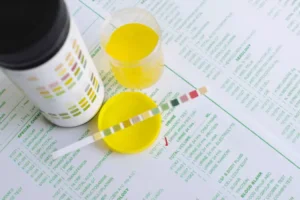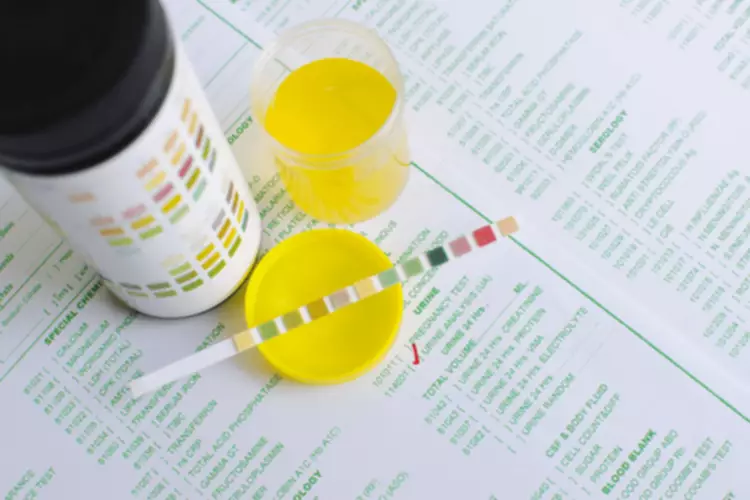
When seeking help from a professional treatment center like Woodland Recovery Center, individuals can learn how to manage their addiction and make positive changes in their lives. Alcoholism is a chronic disease characterized by a person’s inability to control or stop drinking despite the negative consequences it may have on their health and life. This section will explore alcoholism as a disease, the impact of alcoholism on lifespan, and the various factors that can affect the lifespan of individuals struggling with alcoholism. A number of research studies have been conducted recently to determine how many years alcohol typically takes off a person’s life expectancy.

Are There Different Stages of Alcoholism?

This damage can eventually result in fatal conditions like cirrhosis and liver Halfway house failure. It should not be used in place of the advice of your physician or other qualified healthcare provider. Alcohol use, especially excessive alcohol consumption, can harm your physical and mental health. From damaging vital organs to impairing brain function and jeopardizing relationships, the negative consequences of excessive alcohol use are far-reaching.
Effective Addiction Relapse Prevention Techniques

It is crucial for individuals with alcoholism to address their nutritional needs through a well-balanced diet and, if necessary, dietary supplements. Seeking guidance from a healthcare professional or a registered dietitian can be beneficial in creating a nutrition plan that supports recovery and overall health. Alcoholism often coexists with mental health problems, creating a complex and challenging situation for individuals. Heavy alcohol use can contribute to the development or exacerbation of mental health disorders, such as depression, anxiety, and bipolar disorder. Conversely, individuals with pre-existing mental health conditions may turn to alcohol as a form of self-medication, further worsening their overall well-being. The timeline for recovery varies depending on the individual and the severity of their alcohol use disorder.

Community-Based Prevention Programs Reduce Likelihood of Teen Prescription Abuse
- If you or a loved one suffers from end-stage alcoholism, there is hope for recovery.
- Other than the fact that someone is drinking more than usual, it might be hard to detect that there’s even a problem because outwardly the alcoholic appears normal.
- To diagnose ALD, a healthcare provider will assess alcohol use, ask about symptoms, and conduct several tests.
- Discover the difference between drug detox and drug addiction rehab, and find the right path to recovery.
- During the early stages of the disease, the person may drink heavily and may experience hangovers in between drinking episodes.
But for a person who drinks heavily, the body adapts the majority of the time. Eventually, their lifespan of an alcoholic tissue cells may become dependent on alcohol to function normally. When it comes to your beverage of choice, alcoholic beverages are unique.
- Chronic alcohol use and binge drinking damage the heart muscle, making it harder for the heart to pump blood effectively.
- You can help by offering unconditional support, including abstaining from drinking yourself.
- Between 90 and 100 percent of alcoholics develop a fatty liver, which can progress to cirrhosis.
- The Recovery Village is here for you and would welcome the chance to help you start your path to a full recovery.
- Many people know of the short-term consequences of drinking too much such as hangovers, drunk driving accidents, drunken injuries, alcohol blackouts, and alcohol poisoning.
- It’s not often talked about, but left untreated, alcohol use disorder can be a fatal disease.
Once you quit drinking, your body can begin to recover from some of the damage or, at the very least, prevent it from getting worse. Studies suggest that maintaining sobriety for 7 years minimum is the best way to minimise any permanent harm to a person’s physical health 18. This in itself reduces life expectancy, as sufferers were up to 7 times more likely to die before the age of 75 24. Research also suggests that drinking at this level often can lead to weight gain, putting unnecessary strain on the heart and leading to heart failure 18. Moderate drinkers (more than 7 drinks per week) are significantly more likely to suffer from a stroke than light drinkers 19. Drinking alcohol can lead to the development of at least seven types of cancer, including bowel, mouth, throat, and breast cancer 11.
- For a person who drinks occasionally, this adaptation is distinct and temporary.
- We can offer guidance and insight into the recovery process, and will work to provide you with clarity into the steps that lay ahead.
- Research published in PMC suggests that while modest drinking may be protective against certain diseases, such as cardiovascular diseases, it generally worsens health conditions.
- Years of moderate to heavy drinking can cause liver scarring (fibrosis), increasing the risk of liver diseases like cirrhosis, alcoholic hepatitis, fatty liver disease, and liver cancer.